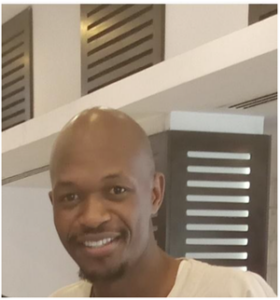Co-chairs
 Chaube Pragya, UNESCO Chair in Community-based Research and Social Responsibility in Higher Education
Chaube Pragya, UNESCO Chair in Community-based Research and Social Responsibility in Higher Education
Pragya CHAUBE is an interdisciplinary scholar and science policy specialist working at the intersection of open science, genomics data governance, and inclusive research practices. With a strong background in human genetics and bioinformatics, she brings years of experience across academia, policy, and international collaboration. She is currently serving as an Assistant Professor at UPES University, one of India’s leading private universities.
Pragya serves as the Co-Chair of CODATA Connect, and both the International Science Council’s CODATA International Data Policy Committee and the Open Science Monitoring Initiative (OSMI), where she works to advance equitable, evidence-informed approaches to open science evaluation globally. She has previously worked with the Department of Science & Technology (Government of India) – Centre for Policy Research at the Indian Institute of Science. Her research and advocacy center around ethical data practices, equitable access to research infrastructures, and the meaningful inclusion of underrepresented communities in science.
She has been actively engaged in global and regional initiatives, including with the UNESCO Chair in Community-Based Research, the Open Science South Asia Network, and the Global Young Academy, and has represented her work at high-level international fora.
In addition to her academic contributions, she has played a key role in mentoring the next generation of scholars and shaping discussions around the social dimensions of science and technology. Her work continues to influence science policy discourse, particularly within the Global South, where she advocates for inclusive, participatory, and justice-oriented models of science.
 Mapatagane Ntsundeni Louis, South African National Committee on Data
Mapatagane Ntsundeni Louis, South African National Committee on Data
Ntsundeni Louis Mapatagane is an accomplished professional with over a decade of senior leadership experience in higher education. He specialises in strategic and institutional planning, institutional research, and sustainability initiatives. His expertise has led to innovative policies and data-driven solutions that enhance institutional performance and promote student success.
Louis holds a master’s degree in environmental sciences, focusing on organisational energy efficiency, and is currently pursuing an MBA in digital transformation and innovation. His PhD research further supports his academic work, which aims to create strategies for improving energy efficiency, reducing greenhouse gas emissions, and planning environmentally friendly infrastructure in higher education institutions.
He is an active member of the South African National Committee on Data for Science (CODATA) and serves as Co-Chair of CODATA Connect under the International Science Council, contributing to global efforts in data science and policy. Additionally, Louis is involved in the Community of Practice on EDHE (Entrepreneurship Development in Higher Education), where he advocates for the development of entrepreneurial ecosystems within academic settings.
His leadership encompasses strategic enrolment management, academic and infrastructure planning, and adherence to higher education regulations. By integrating institutional intelligence with innovative strategies, Louis ensures resilience and sustainability in complex organisational environments.
With a strong commitment to advancing equity, sustainability, and innovation, Louis plays a crucial role in shaping the future of higher education in South Africa and worldwide.
 Zhu Christopher, Researcher, Imperial College London
Zhu Christopher, Researcher, Imperial College London
Christopher ZHU is a dedicated researcher in the fields of data science and climate change, with over years of experience in both academia and industry. Before joining Imperial College, Christopher studied at the Oxford Mathematical Institute, University of Oxford. He has been serving as a data and climate scientist at the International Science Council, and also the Chair of the CODATA Connect, Committee on Data of the International Science Council. He has frequently provided political counsel to organizations such as the United Nations, the European Union, UNESCO, SAR governments, and Department of Science and Technology. He has also sat on various expert advisory boards, contributing to both global and national policy development, as well as scientific advancements.
He has served as an invited scientist at prestigious international diplomatic and scientific events such as the United Nations World Data Forum, EU High-level Conference on Science Communication, China Development Forum, Greater Bay Area Science Forum, Muscat Global Knowledge Dialogue, International Conference on Small Island Developing States, etc. He has also been leading multiple collaboration with the Royal Academies, the Chinese Academy of Sciences, SAR governments, and various Fortune 500 companies, etc. Additionally, he has been nominated for Forbes 30 Under 30 in Science.
He is an experienced speaker at conferences and seminars. His research work has been recognized at various academic conference such as the United Nations World Data Forum, where his paper has won numerous awards, including the “Best Paper Award,” “Excellent Paper Award,” and “Academic Research Award “. Beyond his academic pursuits, Christopher has contributed to the financial and technological industry, holding leadership roles at renowned international organizations. As the co-founder of his venture capital club in New York, he has actively supported high-tech start-ups, particularly those catering to young professionals in the Chinese-American community, and work closely with Fortune 500 companies.
Members
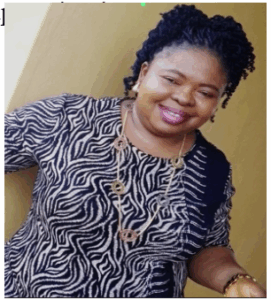 Agboola Temitope Deborah, Olusegun Agagu University of Science and Technology, Okitipupa, Nigeria
Agboola Temitope Deborah, Olusegun Agagu University of Science and Technology, Okitipupa, Nigeria
Dr. Temitope Deborah Agboola is a dedicated and results oriented Applied and Environmental Microbiologist with sound research experience and teaching ability. She is currently serving as the Microbiology program coordinator in the Department of Biological Sciences, Olusegun Agagu University of Science and Technology, Okitipupa, Nigeria.
She had won some local and international training and scientific event travel award. This includes Nigeria graduate scheme, Vice – Chancellor’s publication award, Association of African Universities award, CAS-TWAS, Applied Microbiology International grant award, TWAS-CODATA, SLIBTECH-ICGEB award, Bill and Melinda Gates foundation award.
She had served in many capacities within and outside her institution. She is interested in career that combines teaching and research, while maintaining her engagement with the public about the benefits of training a girl child, the appropriate use of antibiotics, one health and open science. As a researcher, Agboola’s lab focused on studying pathogens of public health importance from the environment (especially aquatic environment) their virulence potentials and response to commonly used antibiotics. The organisms include Listeria, Vibrio, Escherichia and Staphylococcus species. She is currently a principal investigator in two major research projects and she had authored publications in her area of research that could be found in https://scholar.google.com/citations?view_op=search_authors&mauthors=agboola+temitope+deborah&hl=en&oi=ao
She is highly focused on teaching and involvement of students in research activities. Students have proceeded on graduate degrees in medical bioscience, public health, immunology, Marine biology, and bacterial pathogenesis due to her mentorship skills. She had been able to impart her expertise in molecular biology, research data interpretation and report writing to her students.
Allan Ochola, USAID Higher Education Learning Network
Allan is currently serving as a global steering committee member at the USAID Higher Education Learning Network. Recently, he served as a fellow at the Center for AI and Digital Policy, Black Diplomats Academy of Canada and research fellow at the Alexander von Humboldt Institute for Internet and Society. He is also the founder of Diplomacy Now Institute, a global think tank, independent, nonpartisan organization that seeks to develop future leaders in diplomacy, policy, and advocacy to shape today’s international agenda. He has also served as ICT for Agriculture ambassador for USAID in 2022 and 2020 Internet Society United Nations Internet Governance Forum youth ambassador with an aim of reinforcing the importance of multi-disciplinary leadership in fostering the sustainability, robustness, security, stability and development of the Internet. He has authored and published over ten articles and papers published in various journals, blogs and websites. He has interest in AI and ML, open science, future of work, Urban Health and climate change. He is finalizing his Master’s degree in Microbiology at Kenyatta University in Kenya.
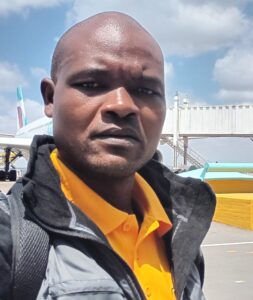 Atuga Gilbert, Kenya Marine and Fisheries Research Institute
Atuga Gilbert, Kenya Marine and Fisheries Research Institute
Gilbert Atuga is a Senior Research Scientist at the Kenya Marine and Fisheries Research Institute, with over 14 years of experience in marine pollution research. His research interests are focused on marine and riverine plastic pollution. He holds a Master’s degree in Marine Biotechnology from Wageningen University, The Netherlands, and is currently pursuing a PhD in Applied Systems Research at Osnabrueck University, Germany. Gilbert has led several research projects as a principal investigator, including Citizen Science for monitoring macroplastics using mobile technology in Kenya, and Macroplastic pollution in the lower Sabaki River in Kenya. He has also published his research in peer-reviewed journals. Driven by his passion for data-driven solutions to human and environmental problems, Gilbert is committed to contributing positively to the CODATA Connect Committee and their mission.

Badimo Tebogo Phuti Damaris, FNB
Ms Tebogo Phuti Badimo is an Information Management Specialist currently working in the financial sector. With a strong background in metadata, records management, information management, data risk and information governance, she brings years of experience across academic, telecommunication and financial sectors. She holds Master of Information Studies from the University of Limpopo. Her area of specialization includes Information Management (Metadata included), Information Governance, and Records Management. Tebogo serves as an external marker (contract basis) to one of the leading distance learning universities in Africa, University of South Africa (UNISA). With an extensive knowledge in Organisation of Information and Knowledge, she marks Advanced Classification subject at UNISA, one of the critical subject in Information Science that enables students with the knowledge of organizing information. Key roles she has played in Information Management discipline includes BI architect, Metadata Specialist, Records Manager and Information Management Specialist.
 Bashir Barjeece, International Research Center of Big Data for Sustainable Development Goals
Bashir Barjeece, International Research Center of Big Data for Sustainable Development Goals
Dr. Barjeece Bashir is a postdoctoral researcher at the International Research Center of Big Data for Sustainable Development Goals, Beijing, China. He completed his undergraduate studies in Geography, earning a gold medal for academic excellence. Through the “Belt and Road” Scholarship, he pursued his master’s degree and further received a Ph.D. under the Chinese Government Scholarship, specializing in Cartography and Geographic Information Systems. Dr. Bashir’s expertise lies in leveraging remote sensing technologies to address environmental challenges, including land degradation, snow algae blooms, and snowmelt processes. His research integrates advanced tools such as Google Earth Engine, R, and Python to perform geospatial analyses and promote innovative solutions for environmental monitoring and sustainability. His work emphasizes fostering collaborations between academia and industry to advance the field of geospatial science. With a strong academic record, Dr. Bashir has contributed to 24 peer-reviewed publications and over 830 citations (https://scholar.google.com/citations?user=78Fy9gEAAAAJ&hl=en). Through his research, Dr. Bashir contributes to tackling global challenges such as climate change and sustainable development by improving our understanding of environmental systems and developing practical solutions for their management.
 De Jong Steffen, IOS Press (Sage)
De Jong Steffen, IOS Press (Sage)
With over 7 years of experience in Scientific Publishing and Library Services, I currently serve as a Journal Manager and Data Analyst at Sage – IOS Press. I specialize in Peer Review Systems, particularly Editorial Manager, and leverage tools like Python, SQL, Power BI, and Jupyter for data analysis and insights into peer review and submission processes.
As the Journal Manager and Publisher of the FAIR Connect journal, I lead projects including the development of its Minimum Viable Product (MVP 1 and 2). FAIR Connect aims to become the leading platform for publishing FAIR Supporting Resources (FSRs), facilitating the publication and accessibility of nanopublications for the data stewardship community and beyond.
My academic foundation in the humanities, with a Master’s degree from Leiden University (2018), informs my interest in the validation and contextualization of scientific findings and the degree to which we can measure and contest any notion of “truth” inside them. By integrating publishing, peer review, FAIR, and technological innovation, I aspire to contribute to systems that compartmentalize research input and output into accessible, verifiable and contestable data objects.
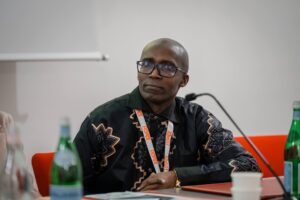 Gonzague Isirabahenda, Babes-Bolyai University
Gonzague Isirabahenda, Babes-Bolyai University
Gonzague ISIRABAHENDA (Gonis) is an experienced mid-career researcher, author of various articles on the issues facing young people and holds a bachelor’s in social work from the National University of Rwanda (NUR), master’s and PhD degrees from Babes-Bolyai University of Cluj-Napoca/Romania (BBU) with thesis topic Graduate Employability: A Qualitative Inquiry on Overqualification among Young People in Romania. Gonzague participated in a project with significant socioeconomic implications. Titled ‘OVERED: University-to-work transition. A qualitative inquiry on over-qualification among Romanian youth,’ The project aimed to shed light on the challenges faced by young Romanians entering the workforce. Gonzague’s Research Interests: Education to work transitions; under-employment phenomenon; Overeducation Skills mismatch; sociology of work; young people. He worked as a research assistant at the Faculty of Sociology and Social Work, demonstrating a record of success in the social services field. He cooperates with international think tanks and NGOs, such as the Council of Europe in the field of youth, the Global Social Service Workforce Alliance, the International Federation of Social Workers (IFSW), the Critical Realism Network, and the CODATA community. He is also an active member of the OECD Forum Network, Network of Employability, Enterprise, and Work-based Learning for the Society for Research into Higher Education (SRHE), and the British Sociological Association (BSA).
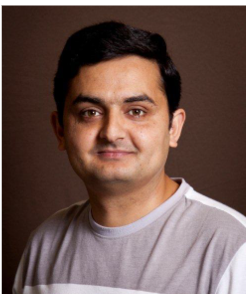 Khanal Shiva, Ministry of Forest and Environment, Nepal
Khanal Shiva, Ministry of Forest and Environment, Nepal
Dr. Shiva Khanal is a researcher at the Ministry of Forests and Environment, Nepal. He completed his master’s degree in 2014 and earned his Ph.D. in 2022 from Western Sydney University, Australia. Dr. Khanal specializes in quantitative data analysis and modelling, with a strong emphasis on spatial ecology and geoinformatics. His research interests span a wide range of topics, including ecology and species interactions, where he investigates how environmental factors influence forest carbon distribution and tree species diversity in the Central Himalayas. His interests include integrating data from field, remote sensing, and geographic information systems to model and understand environmental processes.
Dr. Khanal is proficient in using open-source tools for reproducible computation and scientific reporting. In his recent publications, he applied advanced modelling approaches to analyse forest structure, composition, and carbon stocks, ensuring accurate and impactful results. With expertise in quantitative methods, spatial ecology, and geoinformatics, his ongoing research focuses on the complex dynamics of forest ecosystems ranging from the Himalayan region to Australia, contributing significantly to our understanding of these critical environments.
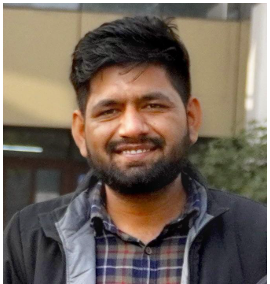 K Mohani Vikash, Jawaharlal Nehru University, Delhi, India
K Mohani Vikash, Jawaharlal Nehru University, Delhi, India
Mr. Vikash K Mohani holds a Bachelor’s degree in Computer Science and Engineering and a Master’s degree in Statistical Computing (Data Science). Currently pursuing a Ph.D. at the School of Computational and Integrative Sciences (SCIS), Jawaharlal Nehru University (JNU), New Delhi, India, he is a Senior Research Fellow supported by the University Grants Commission of India.
Vikash has made significant contributions to the field of computational biology and data science. He recently developed the PAN Cancer PAN Treatment (PCPT) model, a collaborative project with The Cancer Centre of Marseille, France, integrating treatment and multi-omics data to predict drug response. His Ph.D. research focuses on designing computational pipelines to analyze raw single-nucleus RNA sequencing (snRNA-seq) data for understanding the brain’s functional and structural connectivity. This work aims to identify region-specific biomarkers critical for advancing neurological research.
With a strong foundation in interdisciplinary research and innovation, Vikash combines expertise in computer science, statistical computing, and deep learning to address critical challenges in healthcare.
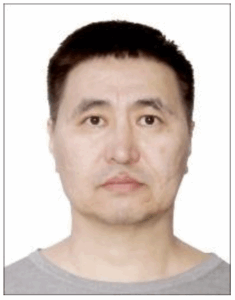 Lkhamjav Ochirkhuyag, Mongolian Geospatial Association
Lkhamjav Ochirkhuyag, Mongolian Geospatial Association
Ochirkhuyag Lkhamjav is a graduate student in the Department of Civil Engineering, National Central University, Taiwan (ROC). Also, he is a geospatial scientist and researcher specializing in remote sensing, GIS, and environmental analysis in the Mongolian Geospatial Association. As a key figure at the Mongolian Geospatial Association, Ochirkhuyag drives the adoption of innovative geospatial tools across government, academia, and industry. His collaborative approach has positioned Mongolia as a hub for geospatial innovation, fostering partnerships that bridge science, policy, and practical application. Ochirkhuyag’s research has been showcased at international conferences, contributing to global discussions on sustainable development and geospatial technology. His ability to translate scientific insights into policy solutions has established him as a respected thought leader. He is dedicated to leveraging emerging technologies—from AI to satellite analytics—to create equitable, data-driven solutions for environmental and societal challenges.
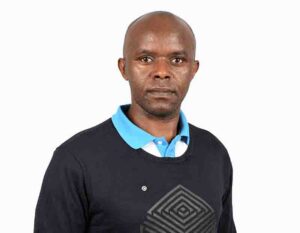 Ngunjiri Ndirangu, University of Nairobi
Ngunjiri Ndirangu, University of Nairobi
Ndirangu is an accomplished financial service professional with a background in investment analysis and appraisal of investment opportunities, building financial models, preparing forecasts, and monitoring the performance of portfolio companies. A scholar in Finance with specialization in Theoretical and empirical work on investments; public private partnership, climate finance, price formation in capital markets, a Researcher & surviving Ph.D candidate.
Ndirangu Ngunjiri is a financial scientist and calculated risk-taker, in 2015 he founded Watermark Financial Consultants where he serves as Managing partner, managing day-to-day operations, working with clients, and winning new accounts, with experience over 17 years. Also he is the chairperson ministerial audit committee Ministry of Foreign Affairs and Diaspora and a member investments and financial securities committee at Kenya Bureau of Standards (KEBS).
In addition, Ndirangu is a Doctoral (Finance & Accounting) student at the University of Nairobi with a research interest in; inequality & poverty, entrepreneurship, economic growth, innovations and national competitiveness, international trade, and productivity. Ndirangu is a regular publisher and columnist with Business Daily Africa among others, he has published in several journals, a peer reviewer, he frequently speaks at international and local conferences. He is a fellow of the following institutes: IFE Institute of Advance Studies, Human Science Research Council, Ubuntu, European Union Law & Governance in Populist Times amongst others.
Ndirangu earned an MBA from the University of Nairobi School of Business and Bachelor of Commerce (Accounting) Egerton University, he is a member of the Institute of Directors, Institute of Internal Auditors, ICIFA, KIM amongst others
Ndirangu serves in several companies, government, and NGO board enjoys rock climb, forest adventures, mountain climbing last year climbed Mt Everest for the second time and is a Rotarian, Rotary Club of Nairobi Madaraka. Finally a church school teacher.
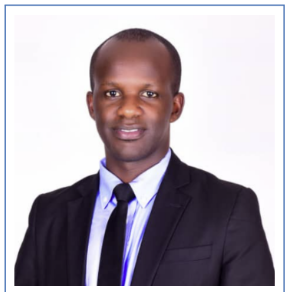 Dieudonné Niyitanga, Revenue Assurance Lead at Bank of Kigali
Dieudonné Niyitanga, Revenue Assurance Lead at Bank of Kigali
Mr. Dieudonné NIYITANGA is an accomplished data and finance professional with extensive experience in banking analytics, revenue assurance, and data science. Currently serving as the Revenue Assurance Lead in the Financial Control Department at Bank of Kigali, Rwanda, he oversees the monitoring and analysis of revenue streams, ensures compliance with financial regulations, and leads process improvements to optimize revenue capture and mitigate financial risks. Prior to this role, he held several data analyst positions within Bank of Kigali, contributing to business intelligence, regulatory reporting, and transformation initiatives.
With a strong academic background in applied mathematics and actuarial science, he has earned multiple advanced degrees and certifications in data science, software quality testing, and leadership. He is also an active member of CODATA contributing to global efforts in data science and research data management. His commitment to data-driven decision-making and cross-departmental collaboration has made a significant impact on strategic planning and operational efficiency within the financial sector. Whether building analytics dashboards or collaborating across departments, he excels at translating complex data into clear, strategic direction.
His career began in education, where he taught mathematics and computer science in various secondary schools, demonstrating a long-standing commitment to knowledge dissemination and capacity building.
He holds a Master’s in Research in Applied Mathematics from Université Cheikh Anta Diop, Senegal, a Master’s in Mathematical Sciences from AIMS-Cameroon, and a Bachelor’s Degree in Applied Mathematics from the University of Rwanda. He is also pursuing a professional qualification in Actuarial Science with the Institute and Faculty of Actuaries (UK).
His professional development includes certifications in data science, software testing, leadership, and management, reflecting a strong commitment to continuous learning and multidisciplinary expertise.
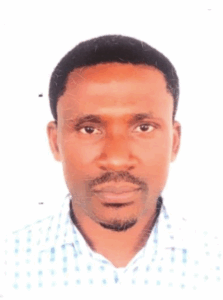 Olomu Michael Oluwaseun, National Centre for Technology Management, Obafemi Awolowo University, Ile-Ife, Nigeria
Olomu Michael Oluwaseun, National Centre for Technology Management, Obafemi Awolowo University, Ile-Ife, Nigeria
Olomu Michael Oluwaseun is an Assistant Director of Research at the National Centre for Technology Management (NACETEM), a research Centre under the auspice of the Federal Ministry of Innovation, Science and Technology (FMIST), Nigeria. He earned his undergraduate studies in Economics and Statistics, and then bagged his master’s and PhD degrees from the prestigious Obafemi Awolowo University, Ile-Ife specializing in Technology Management and Innovation.
He has been a dynamic and vibrant team member in many major nationally sponsored research projects and his research interest includes Economics of innovation and development, ICT innovations and management, science policy, development studies and entrepreneurship with major focus on industrial policy and development. His research integrates advanced tools such as SmartPLS, SPSS to promote digital transformation solutions for industrial clusters development, policy and learning capabilities. He was also part of the team that evaluated the apprenticeship-based entrepreneurship intervention programme in Nigeria, project sponsored by International Development Research Centre (IDRC), Canada.
His current research focuses on understanding the impact of digital service innovation (DSI) antecedents, and how technological knowledge support systems and learning capabilities influence the performance of the technology-based industrial clusters in latecomer economies. His work emphasizes fostering collaborations among government, industry and academia to advance the field of industrial development and digital transformations. With a vibrant academic prowess, he has contributed to numerous peer-reviewed publications, books, and reports: https://scholar.google.com/citations?user=wm9xb_sAAAAJ&hl=en
Through his multidisciplinary research, he contributes to the adoption and diffusion of disruptive technologies for sustainable industrial development by improving the policy and understanding the dynamics of the Fourth Industrial Revolution (4IR). With a strong commitment for data-driven policy initiatives to stimulate industrial development and digital transformations, Michael is devoted to advancing and promoting the community of Committee on Data for Science (CODATA) Connect.
 Shah Afroz Ahmad, University of Brunei Darussalam
Shah Afroz Ahmad, University of Brunei Darussalam
Afroz Shah is Senior Assistant Professor of Structural Geology at the Department of Geosciences, Universiti of Brunei Darussalam (UBD). He is also the Programme Leader, as well as a National Geographic Explorer, earthquake scientist and educator. He completed PhD at James Cook University, Australia, in 2010, a post-doctorate at Earth Observatory of Singapore in 2013 and joined his first academic job as a Senior Lecturer of Structural Geology at Curtin Sarawak, Miri, Malaysia, before joining UBD. His research mainly involves brittle deformation of lithospheric plates, focusing mainly on earthquake-causing faults in South and Southeast Asia. He enthusiastically participates in earthquake science education and outreach and frequently writes in newspapers, magazines, and blogs!
His published works comprise edited books, research articles, blogs and newspaper columns covering a wide range of topics, including earthquakes, landslides, and flood hazards in the South and SE Asia.
Wang Shu, Institute of geographic sciences and natural resources research, Chinese Academy of Sciences
Dr. Shu Wang is currently an Assistant Professor at the Institute of Geographic Sciences and Natural Resources Research, Chinese Academy of Sciences (CAS), where he is affiliated with the state key laboratory of resources and environmental information system. He also serves as a member and secretary of the Group Standards Working Group of the Geographical Society of China. His research focuses on Geographic Knowledge Graphs(GeoKG), web data mining, and Sustainable Development Pathways (SDPs) recommendations. He has led several national-level projects, including general and youth projects of the National Natural Science Foundation of China, the National Key R&D Program of China, and the Strategic Priority Research Program of the CAS. He has published over 40 SCI/SSCI academic papers (ResearchGate Portal: https://www.researchgate.net/profile/Shu-Wang-59 ), authored 1 academic monograph, contributed to the formulation of several national, industry, and group standards, and holds 4 national invention patents. He has received numerous accolades, including the First Prize of the Geoinformation Science and Technology Progress Award and the Best Paper Award from the IGU Modeling Geographical Systems Commission.
Page last updated: 2026-01-07

